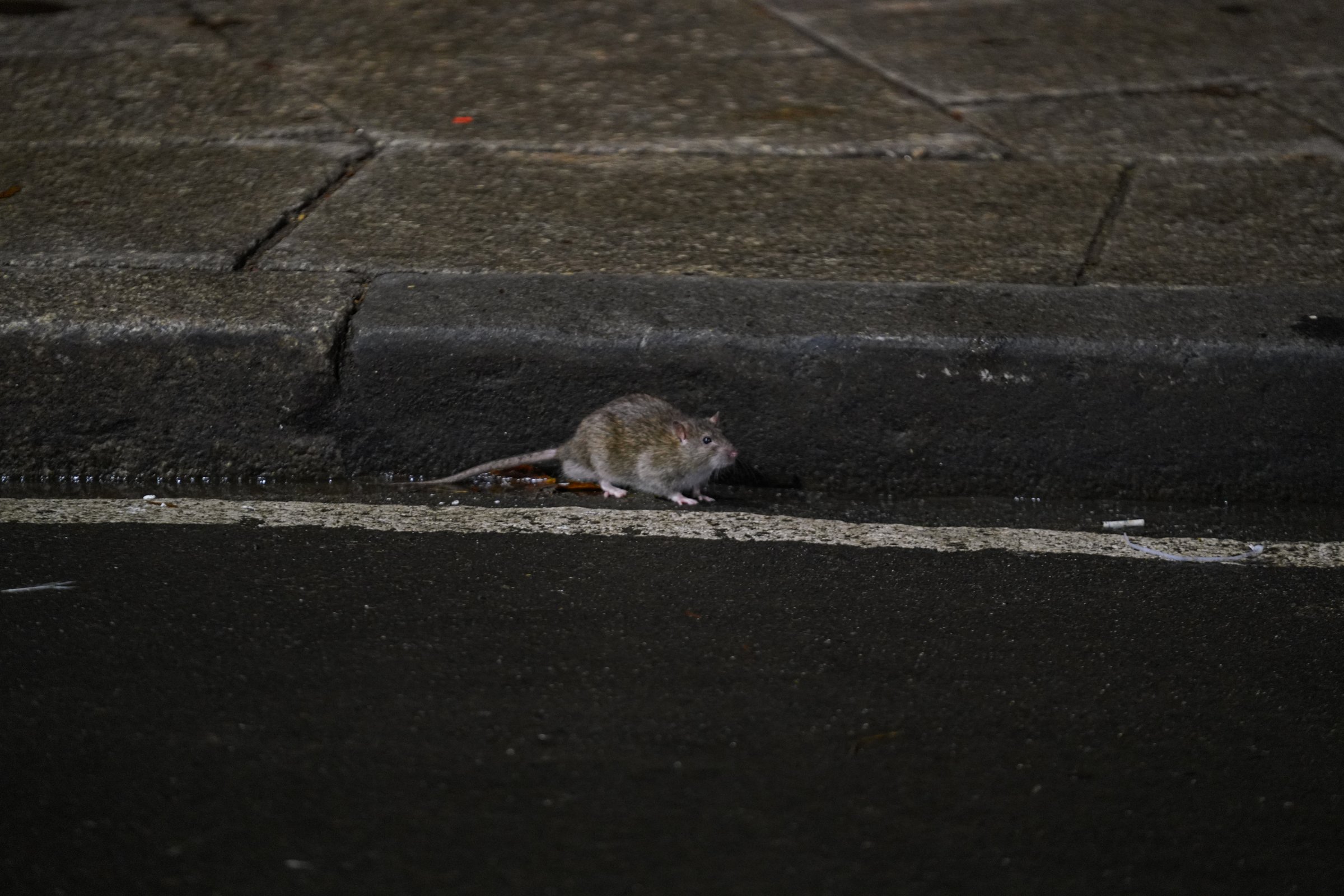
A new study has found that not even New York City’s rats are immune to COVID-19.
The study, published in mBio, the American Academy of Microbiology’s journal, found that wild rats in the city’s sewer system and elsewhere in the city have been exposed to SARS-CoV-2 and demonstrated that rats are susceptible to infection with Alpha, Delta, and Omicron variants of the virus.
“Our findings highlight the need for further monitoring of SARS-CoV-2 in urban rat populations and for evaluating the potential risk of secondary zoonotic transmission from these rat populations back to humans,” the authors wrote in the study.
The researchers wanted to understand whether the virus in humans had been transmitted to rats, as well as which variants rats were susceptible to. The team set up two trappings near locations surrounding wastewater systems and captured 79 rats from three sites in and around city parks in Brooklyn in the fall of 2021, when Delta was dominant.
Read More: Why Animals Are Less Vulnerable Than Humans to Omicron
Thirteen of the rats (about 16%) tested positive for COVID-19, and the researchers used genomic analyses to determine a possible link to the viruses that were circulating in humans during the early stages of the pandemic. “To the best of our knowledge, this is one of the first studies to show SARS-CoV-2 variants can cause infections in the wild rat populations in a major U.S. urban area,” said Henry Wan, director of the Center for Influenza and Emerging Infectious Diseases at the University of Missouri and the study’s principal investigator, in a news release.
By giving wild rats samples of different variants through the nose, the researchers also found that Alpha, Delta, and Omicron were able to infect the rats.
The U.S. Centers for Disease Control and Prevention says that there is little risk of animals spreading COVID-19 to humans. But Wan said the findings highlight the need for continued monitoring of rats to watch for potential evolution of new strains of the virus that could be a risk to humans.
“Overall, our work in this space shows that animals can play a role in pandemics that impact humans, and it’s important that we continue to increase our understanding so we can protect both human and animal health,” he said.
More Must-Reads from TIME
- Cybersecurity Experts Are Sounding the Alarm on DOGE
- Meet the 2025 Women of the Year
- The Harsh Truth About Disability Inclusion
- Why Do More Young Adults Have Cancer?
- Colman Domingo Leads With Radical Love
- How to Get Better at Doing Things Alone
- Michelle Zauner Stares Down the Darkness
Write to Simmone Shah at simmone.shah@time.com